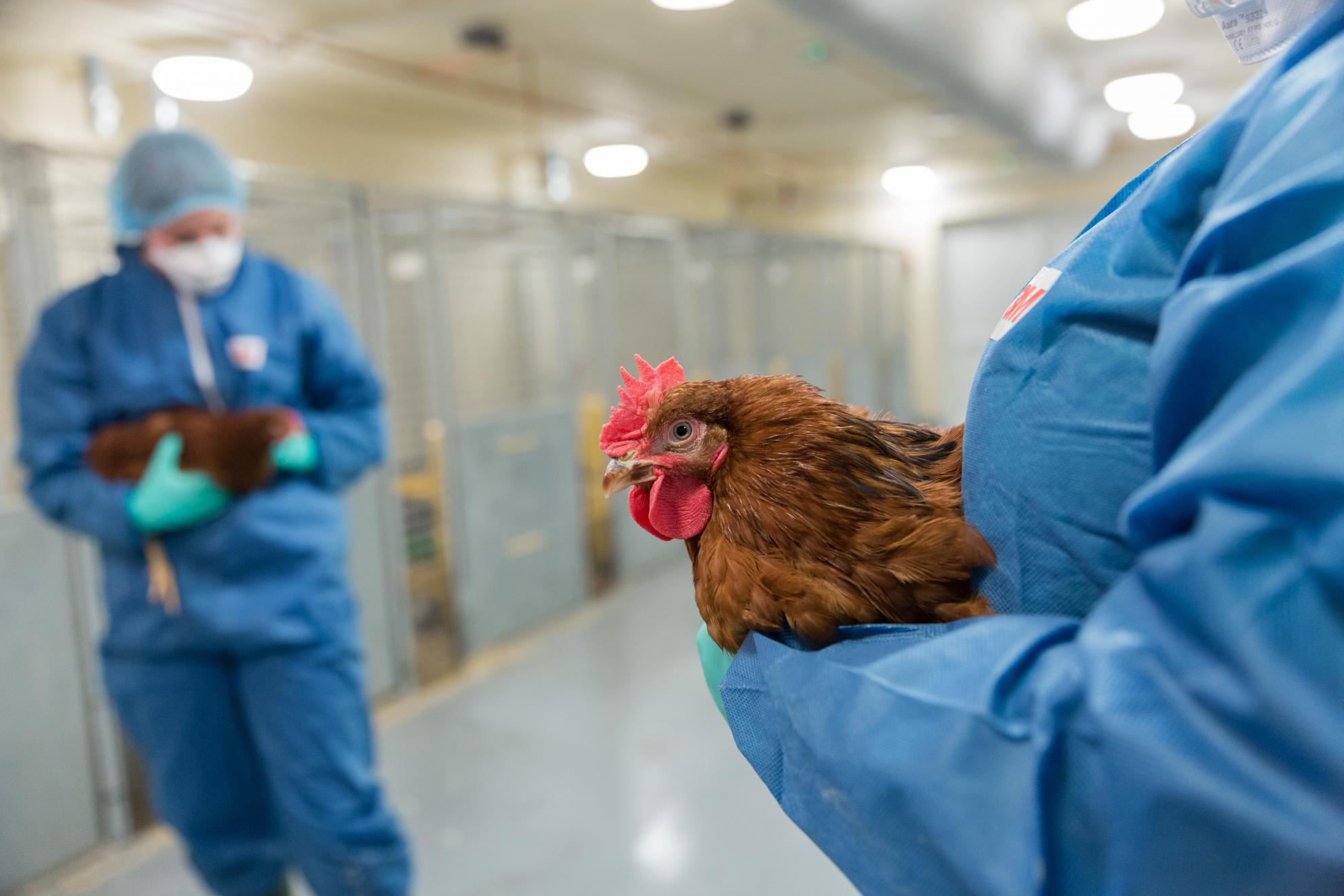- Pirbright study reemphasises the importance of vaccination
- Imperfect vaccines allow for the evolution and survival of increasingly virulent versions of a virus in the population
- Research highlights benefits of ‘perfect’ vaccines that completely prevent transmission
Scientific experiments with the herpes virus strain that causes Marek's disease in poultry have shown for the first time that some types of vaccines allow for the evolution and survival of increasingly virulent versions of a virus that could put unvaccinated individuals at greater risk of severe illness.
While many vaccines - such as common childhood vaccines - work perfectly, others could be improved. These ‘imperfect’ vaccines still prevent the vaccinated host from getting sick but do not prevent the transmission of the virus. In the case of Marek's disease in poultry, this led to the survival of increasingly virulent versions of a virus in the population, putting unvaccinated individuals at greater risk of severe illness. The research has important implications for food-chain security and food-chain economics, as well as for other diseases that affect humans and agricultural animals.
The new research, which was published in the Open Access journal PLOS Biology on 27 July 2015, investigates how the use of “leaky” or “imperfect” vaccines can influence the evolution of virulence in viruses. The work was carried out by an international group led by Professor Andrew Read, the Evan Pugh Professor of Biology and Entomology and Eberly Professor in Biotechnology at Penn State University, and Professor Venugopal Nair, the Head of the Avian Viral Diseases programme at The Pirbright Institute.
Imperfect, or leaky, vaccines are known as such because they prevent the vaccinated host from getting sick but do not prevent the transmission of the virus, thus the virus is able to survive and to spread throughout a population. "In our tests of the leaky Marek's disease virus in groups of vaccinated and unvaccinated chickens, the unvaccinated died while those that were vaccinated survived, and transmitted the virus to other birds left in contact" Nair said. "Our research demonstrates that the use of leaky vaccines can promote the evolution of nastier 'hot' viral strains that put unvaccinated individuals at greater risk."
"When a vaccine works perfectly, as do the childhood vaccines for smallpox, polio, mumps, rubella, and measles, it prevents vaccinated individuals from being sickened by the disease, and it also prevents them from transmitting the virus to others," Read said. These vaccines are "perfect" because they are designed to mimic the strong immunity that humans naturally develop after having been exposed to one of these diseases. "Our research demonstrates that another vaccine type allows extremely virulent forms of a virus to survive -- like the one for Marek's disease in poultry, against which the poultry industry is heavily reliant on vaccination for disease control" said Prof. Nair. "These vaccines also allow the virulent virus to continue evolving precisely because they allow the vaccinated individuals, and therefore themselves, to survive".
"Vaccines for human diseases are the least-expensive, most-effective public-health interventions we ever have had," Read said. "But the concern now is about the next-generation vaccines. If the next-generation vaccines are leaky, they could drive the evolution of more-virulent strains of the virus." He also recommends vaccination for individual protection. "When evolution toward more-virulent virus strains takes place as a result of vaccination practices, it is the unvaccinated individuals who are at the greatest risk. Those who are not vaccinated will be exposed, without any protection, to the hottest strains of a virus. Our research provides strong evidence for the importance of getting vaccinated.”
Melanie Welham, BBSRC’s Science Director, said: “Vaccination is a vital health intervention for humans and animals but some vaccines work more effectively than others as not only do they prevent disease in the vaccinated individual but also stop onward transmission of the virus. Many vaccines work exceptionally well, such as those we receive in childhood. However, in rarer cases the only vaccines that we have are so-called ‘imperfect’ vaccines and these could contribute to a greater risk for unvaccinated individuals – clearly there is room for improvement of such vaccines. This research not only highlights the vital importance of vaccination, but also illustrates why ongoing vaccine research is vital to improve outcomes for all.”
